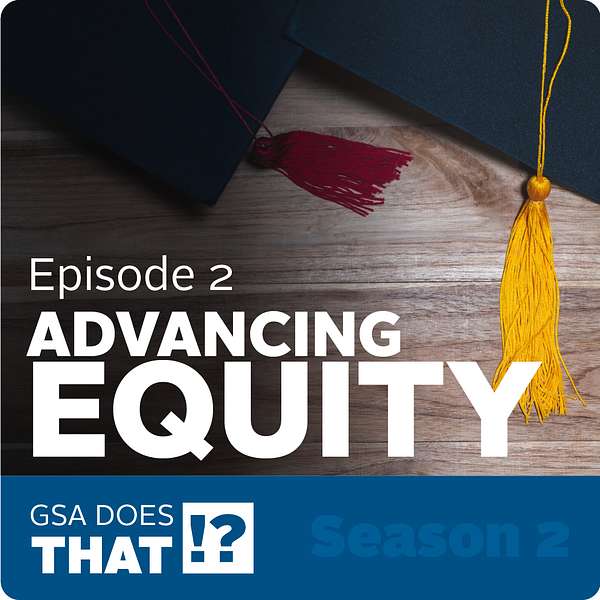
GSA Does That!?
GSA Does That!? tells the stories of how GSA delivers effective and efficient government through its buildings, acquisitions, and technology. Each episode will give listeners a behind-the-scenes look at the people and programs making the business of government happen.
GSA Does That!? has something for everyone, featuring interviews with senior leadership, program experts, outside guests, and others who will provide fresh perspectives on GSA's work.
GSA Does That!?
Advancing Equity
In episode 2 of Season 2 "GSA Does That!?" podcast explores GSA's commitment to equity and opportunity for HBCUs, outlining strategies to enhance representation and collaboration. Highlighting the administration's efforts to recruit from HBCUs and streamline their access to federal contracts, the episode features insights from GSA’s Krystal Brumfield and Dr. El-Dweik of Alabama A&M. It emphasizes the ongoing work to integrate HBCU talent into federal service and foster a more inclusive future.
Want to know more?
If you're interested in learning more about how GSA is offering support for HBCUs, check out the resources below:
"GSA Does That!?" is the U.S. General Services Administration's first agency-wide podcast, offering listeners an inside look into how GSA and its partners benefit the American people. The podcast features interviews with GSA leaders, experts, partners, and customers, covering topics such as federal real estate, acquisitions, and technology. The title reflects many's surprise at the scope of GSA's impact. Whether you're a policy wonk or just curious about government operations, you can join the listener community.
For more information about the show visit, gsa.gov/podcast.
